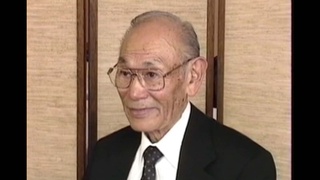Interviews
State Department records show concern for treatment of Japanese American internees
When you look through State Department records, especially, you will discover that the State Department was very concerned about how Japanese Americans were treated here because Imperial Japan would find out about it and they could mistreat prisoners, who were American, who they were holding. And so it would be a tit-for-tat situation. And the State Department was very interested and concerned that Japanese nationals and Japanese Americans here [in the U.S.] be treated decently so that Americans held as prisoners and internees by Imperial Japan would be treated decently. So [the] State Department would never have allowed and, therefore, get word to [Henry L.] Stimson, Secretary of War, [would not have] allowed anything like that to happen.
There’s even a letter that Michi has published in her book—it’s a Stimson letter— talking about possible reprisals, threatening Japan that the they could do something to us [who were in the camps] if they [Japan] did not treat Americans right. There was a tremendous concern [by top level government officials that] so it would not have happened. In other words, the camps, we would not have been forcibly, by the point of bayonet, been forced into the camps. I am positive of that.
Date: August 26, 1998
Location: Virginia, US
Interviewer: Darcie Iki, Mitchell Maki
Contributed by: Watase Media Arts Center, Japanese American National Museum









